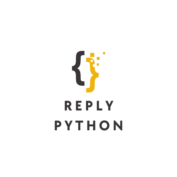 Looking to dip your toes into the world of coding but not sure where to start? Understanding the easiest code to learn can be the first step towards unlocking a whole new set of skills. Whether you’re a complete beginner or someone looking to expand their knowledge, choosing a programming language that’s beginner-friendly can make all the difference.
Looking to dip your toes into the world of coding but not sure where to start? Understanding the easiest code to learn can be the first step towards unlocking a whole new set of skills. Whether you’re a complete beginner or someone looking to expand their knowledge, choosing a programming language that’s beginner-friendly can make all the difference.
In this article, we’ll explore some of the easiest coding languages to pick up, even if you have no prior experience. From straightforward syntax to robust community support, these languages are designed to ease beginners into the world of programming. By the end of this read, you’ll have a clearer idea of which coding language might be the perfect fit for your learning journey.
Easiest Code to Learn
To embark on a successful coding journey, understanding coding fundamentals is crucial. Here are some key aspects to consider:
Mastering the basics of coding sets a strong foundation for learning any programming language. It’s like building a house; a solid base ensures a stable structure. Beginners should focus on concepts like variables, loops, and functions to grasp the core principles of coding.
Coding languages differ in syntax, usage, and application. While some languages like Python prioritize readability and simplicity, others like C++ focus on performance and low-level operations. Understanding these differences helps beginners choose a language that aligns with their learning goals and future projects.
The Easiest Codes to Learn for Beginners
When considering the easiest codes to learn for beginners, certain languages stand out for their user-friendly syntax and broad applicability. Below are some popular options that offer simplicity without compromising functionality.
Python: Versatility and Simple Syntax
Python is renowned for its readability and straightforward syntax, making it an excellent choice for novice programmers. Its versatility extends to various domains, including web development, data science, and automation. With an extensive standard library and a vibrant community, Python empowers beginners to swiftly grasp coding concepts and create practical applications.
JavaScript: Gateway to Web Development
JavaScript serves as a fundamental language for web development, enabling beginners to craft interactive and dynamic websites. Its compatibility with all major browsers and robust frameworks like React and Angular enhances its appeal. By mastering JavaScript, learners gain essential skills for front-end and back-end development, paving the way for diverse career opportunities in the tech industry.
Ruby: Focused on Simplicity and Productivity
Ruby prioritizes programmer happiness by emphasizing clean and concise code, fostering a productive coding environment. As a beginner-friendly language, Ruby promotes simplicity and expressiveness, facilitating rapid application development. Its focus on developer satisfaction and ease of use makes it an attractive option for individuals starting their coding journey.
Factors That Influence Coding Learning Curve
When it comes to mastering a coding language, several factors can impact the learning curve for beginners. Understanding these influential elements can help individuals make informed decisions about which language to pursue based on their goals and aspirations.
Community Support and Resources
Community support plays a crucial role in the learning journey of a coder. Access to online forums, tutorials, and active developer communities can significantly aid beginners in resolving queries, learning new concepts, and staying motivated. Languages with robust community support, like Python and JavaScript, offer a wealth of resources that can support learners at every stage of their programming endeavors.
Application and Career Opportunities
 Considering the practical applications and career prospects of a coding language is essential for beginners. Some languages, such as Python, are highly versatile and widely used across various domains like web development, data science, and automation. Understanding the real-world applications and job opportunities associated with a specific language can help aspiring coders align their learning path with their professional ambitions. Python, for instance, presents abundant opportunities in fields such as artificial intelligence, machine learning, and scientific computing, making it a strategic choice for beginners aiming for diverse career possibilities.
Considering the practical applications and career prospects of a coding language is essential for beginners. Some languages, such as Python, are highly versatile and widely used across various domains like web development, data science, and automation. Understanding the real-world applications and job opportunities associated with a specific language can help aspiring coders align their learning path with their professional ambitions. Python, for instance, presents abundant opportunities in fields such as artificial intelligence, machine learning, and scientific computing, making it a strategic choice for beginners aiming for diverse career possibilities.
In the realm of programming, beginners looking for the easiest code to learn often seek out online tutorials and code academies. These resources offer structured learning paths, interactive exercises, and hands-on coding experience, making it easier for novices to grasp fundamental concepts and advance their skills.

